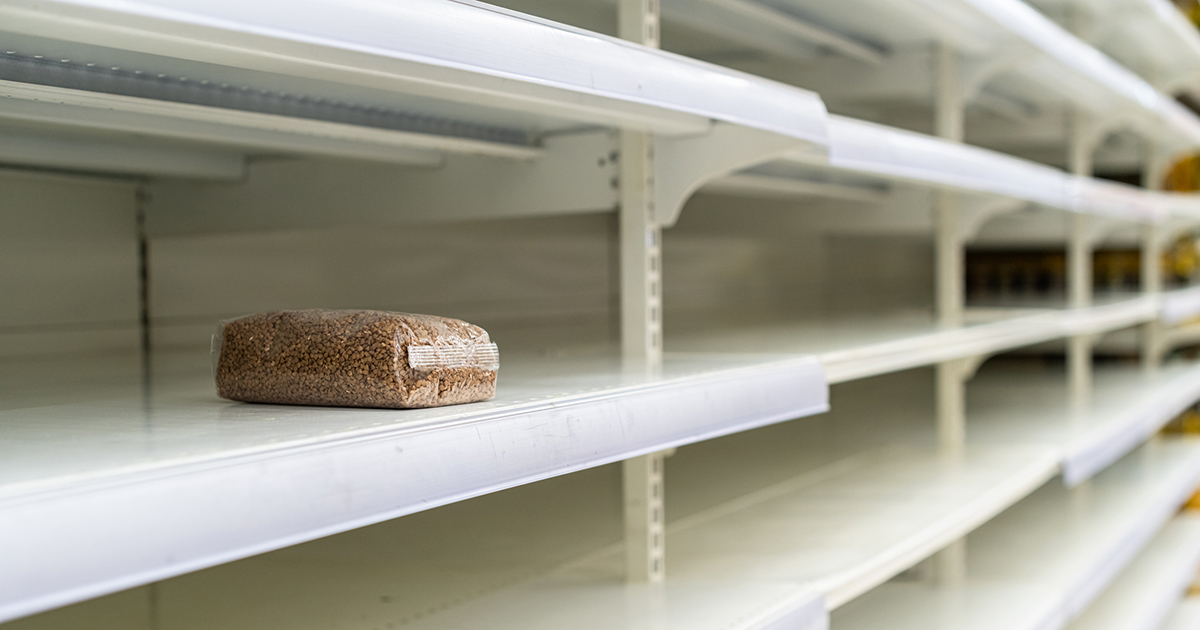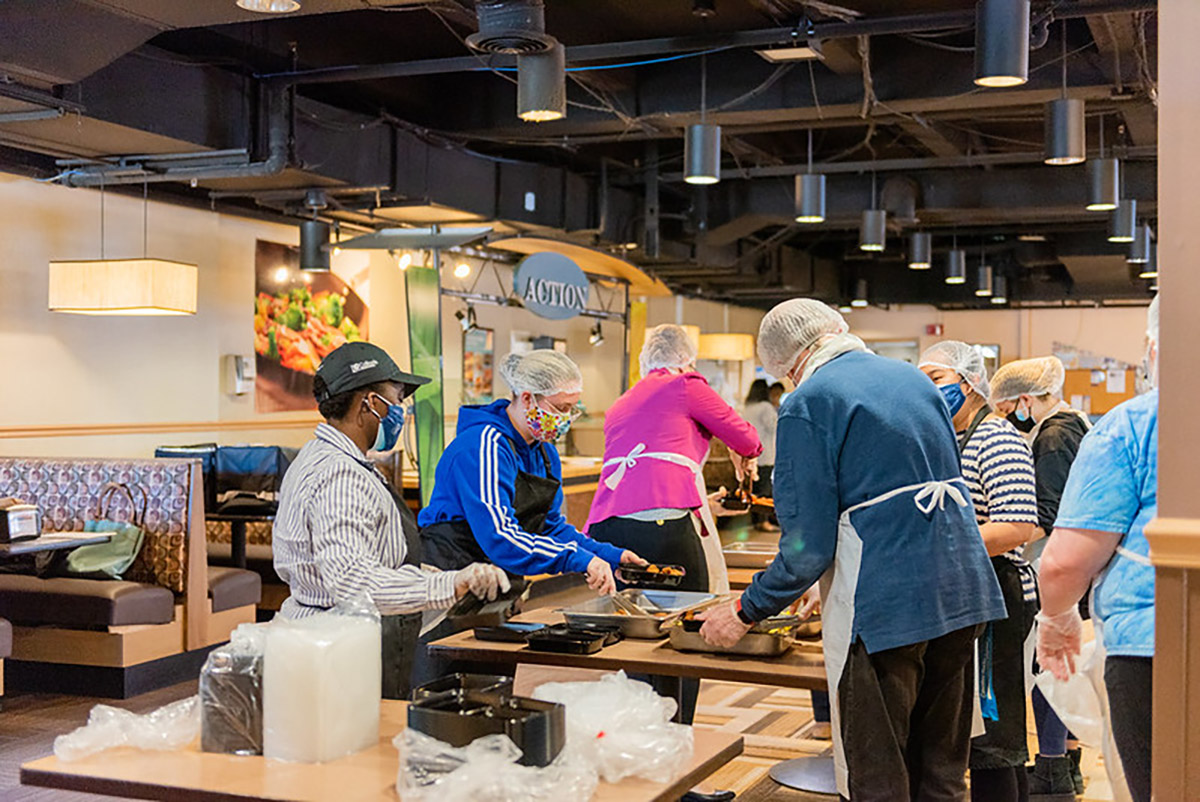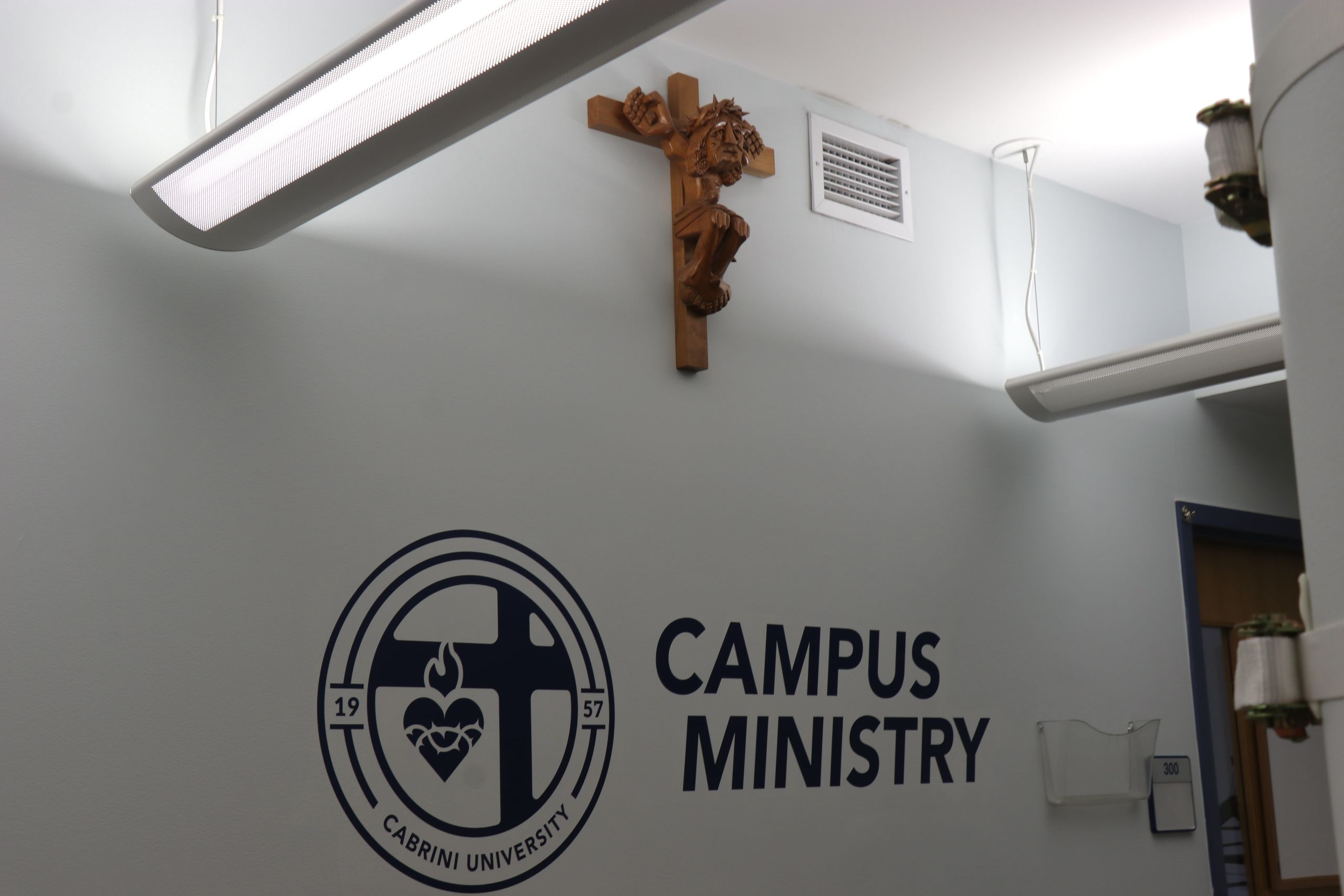
Food shortages have made life more difficult around the world, and many people must manage their food supplies to try and bear the brunt of a shortage.
Jake Melnick, sophomore business management major, said, “The best thing that all of us could probably do is day by day, buy the stuff that we need instead of overbuying.”
“If people were to better budget and narrow down the types of food that they were eating so they can go out, get exactly what they need, nothing more than that, ration basically, in the long term it would help us out a lot,” he said.
People rationing out the amount of food that is necessary for their family will pay dividends in favor of society against food shortages.
He expressed how people value that they have a lot more now than they used to.
“COVID-19 was a valuable lesson for everybody in terms of resource management, trying to learn how much of a product that you actually need whether it’s food, entertainment or something that you’re looking for in the future. It’ll teach you both not to get too much of it when it’s plentiful and knowing what you’re going to be able to do alternatively if the things that you’re looking for are not there,” Melnick said.
People knowing their limits when it comes to grocery shopping; it can be a point of emphasis to help navigate the issue of food insecurity.
Melnick said how people can spread awareness on this issue, “Social media management more than anything else. A lot of people catch on to that quicker because everybody is on their phone, everybody is always going to see stuff right in front of their face.”
“Even though we are in a very fortunate country and have quite an abundance of a wide variety of different resources, they’re not always going to be there,” Melnick said.
Guilherme Lopes, director of campus ministry, said, “In the United States in particular, we don’t necessarily experience food shortages. I think that they’re a first world problem. When you look at big distributors like Costco, we sell a ton of food all the time in bulk. I think what’s happening is there is an unequal distribution of how that food is delivered. Those that have means have easier access to it, and those that do not have means, really struggle to come about it.”

With an unequal distribution of the food that is being delivered, shortages may seem inevitable in some areas of the world.
“I don’t know where people are in terms of that hierarchy, how important it is just to get food to people. I think here again in the United States, it’s not necessarily about do we have enough food, it’s more of is food going to the right places,” Lopes said.
He said if people want food, it’s available. It just may not be going where it needs to be at times.
“For those who are distributing food, those who are experiencing inequality of food insecurity shelter in food pantries, food banks, they know what they’re running short of. They hit the streets and say, ‘hey, we’re looking for donations,’” he said.
From Lopes’ experience from working with food pantries, he believes that they help reduce the severity of food insecurity.
Lopes said how the perception of the food currently available has changed, “We really need to understand that when food is presented in front of us that it is a gift, a privilege to eat and not everyone has the same luxury of how much food is on our plate. We waste a lot of food in states, we waste a lot of food here at Cabrini, we throw away a lot of food. Students sometimes will put too much on their plate and throw it out, myself included, I make that mistake often to because I think we fear that hunger pain, we fear not having enough. So I think once we change our relationship with food, understanding that it’s a gift from the divine, I think we change our approach in how we eat, how much we eat, when we eat, why we eat, that’s all very important.”

Being able to understand the importance of food in society as shortages have continued, it will change the overall approach of eating.
“I think that there’s a lack of respect for the gift of food. That’s the heart of it,” he said. Food in everyday lives can be taken for granted to an extent as some aren’t as knowledgeable about food shortages.
Lopes said, “Campus Ministry has a program called ‘Are You Eating That?,’ where the food at the end of the day that’s going to get thrown out, we package and donate it to CHOC. We’ve donated for almost the last two years now, every Monday we’ll donate about 40 to 50 meals that were going to end up being thrown out because it was too much.”
Programs ran on campus to support the problem of food shortages not only look to spread awareness, but also hope to get others to engage in taking action.
“Sodexo and Tracy Eells in particular is a champion at making sure that we have enough food here, that food is as affordable as it could be. Understanding that supply is low because of the transportation issues that are happening due to COVID-19 and also willing to work with the community and saying if we have too much food, we’ll donate it,” he said.
Working with the community by donating food, it’s a way to help reduce food insecurity at a time.
Food shortages in different parts in the world are primarily caused by the distribution chains by companies and the amount of food consumers buy. If people stock up on a product, it can cause a shortage in another part of the world.
The food on consumers’ plates has been taken for granted for quite some time. Many don’t know how much is being wasted while others are in dire need of it. Taking notice of the struggles that many are having with food insecurity, those that have the necessary means of accessing food easier than others can change their way of approaching it to allow others to consume what they can.



